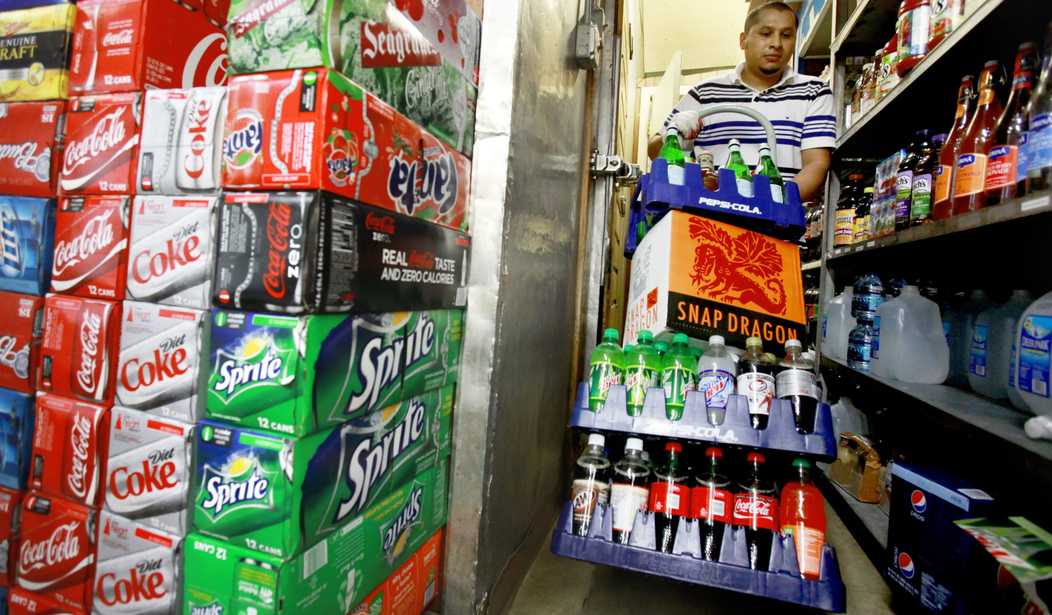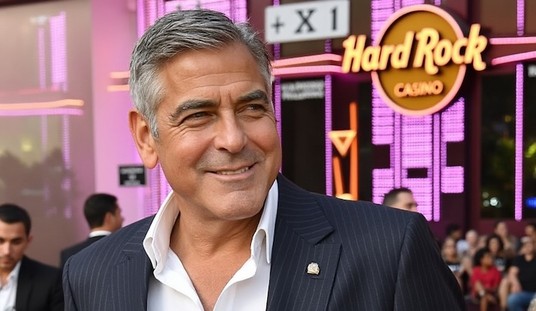Politico writes that “public health advocates, flush from victories in Mexico and Berkeley, California, are plotting to bring voter referendums and legislation to tax soda in as many as a dozen U.S. cities in 2016.”
At the center of the strategy to punish soda drinkers across the nation are billionaires from Texas and New York, including King of the Nannies, Mayor Michael Bloomberg.
“We think that 2016 is going to be a very important year for the sugar-sweetened beverage tax discussion,” said Kelly Henning, director of public health programs at Bloomberg Philanthropies. “We think the Berkeley tax and the Mexico tax are really pushing the debate forward.”
Is there going to be a “discussion” Ms. Henning, or is there going to be some laws shoved down people’s throats funded by the 1%?
These “sin taxes” that pad the treasure chests of state and local government are nothing new. But adding yet a new “sin tax” might face a backlash at the ballot box — after all, Bloomberg faced a humiliating defeat in the liberal mecca of New York City.
“What I think it provides is yet another reminder, certainly for Republicans and the Republican-leaning electorate, of ongoing government social engineering and government overreach,” said Scott Gessler, a Republican and a former Colorado secretary of state.
Bloomberg has poured millions and millions of dollars into the soda tax efforts in Berkeley and Mexico. At the national level, groups like the NRA have pushed back against Bloomberg, who is also underwriting a gun-grabbing effort. But the local situation is another story.
At the grass-roots level, health advocates who support soda taxes are starting to feel like they’re finally getting traction. They won’t name which cities might be next to carry the soda tax banner — fearing Big Soda will crush fledgling efforts — but possibilities include progressive communities like Seattle, San Francisco, Oakland and Austin, Texas.
Prior to the Berkeley soda tax passing, Big Beverage managed to defeat 30 different proposals around the country to slap a tax on soda.
“The Big Soda script is now predictable, so groups feel better able to handle the industry tactics,” said Jim Krieger, a former health official for King County, Washington, who now leads Action for Healthy Food, a newly formed 501(c)(4) in Seattle that’s advocating for the soda taxes.
And the nannies will continue to beat their regulatory drum and push forward. “They are powerful, but it doesn’t mean they are unbeatable,” says Tom Farley, who served as New York City health commissioner in the wake of Bloomberg’s attempted Big Gulp ban. “There was a day when the tobacco companies were considered unbeatable, too.”
There is currently a federal bill in the House, introduced by Rep. Rosa DeLauro (D-CT), that the beverage industry is fighting against. Although there is little chance of the bill passing, Big Soda has spent more than $350K a quarter to defeat the bill. Coca-Cola and Pepsi have spend about $3m per quarter to stop it.
“I think a lot of elected leaders see that it’s a dead end,” William Dermody, vice president of policy for the American Beverage Association, said of the soda tax idea. “People don’t want their grocery items taxed or any single grocery items taxed in a discriminatory fashion.”
Or, people just don’t want any more taxes.
So while the groups opposed to a soda tax are spending some major cash, what isn’t known is that Bloomberg spent $18m to pass a soda/junk food tax in Mexico. And Texas energy billionaires Laura and John Arnold have spent $40m on research about sugary drinks and launched the group Action for Healthy Food, which has a $1.7m budget to get people to eat less sugar (by taxing them).
Lost amid this proposed legislation and scheming about where to impose a new “sin tax” is the question of whether its the government’s job to force citizens to be “healthy.” It isn’t the government’s job so be vigilant in your community against efforts to punish you for consuming a product that is entirely legal.









Join the conversation as a VIP Member